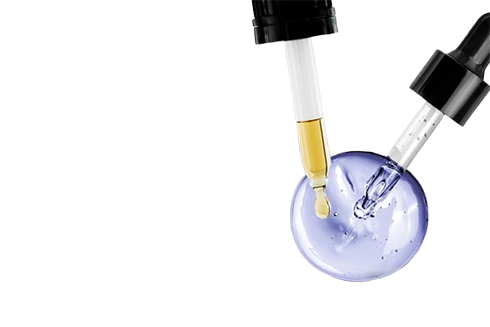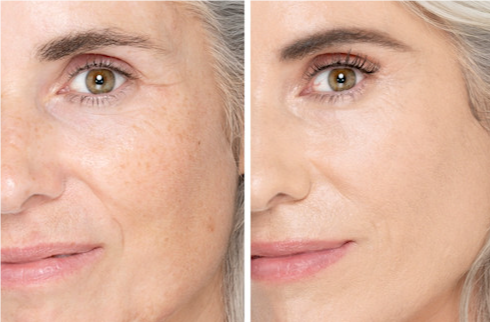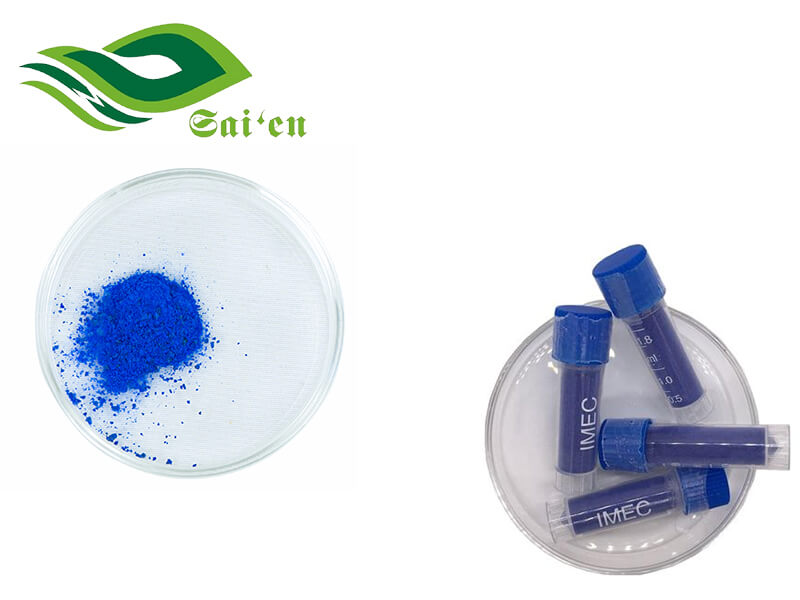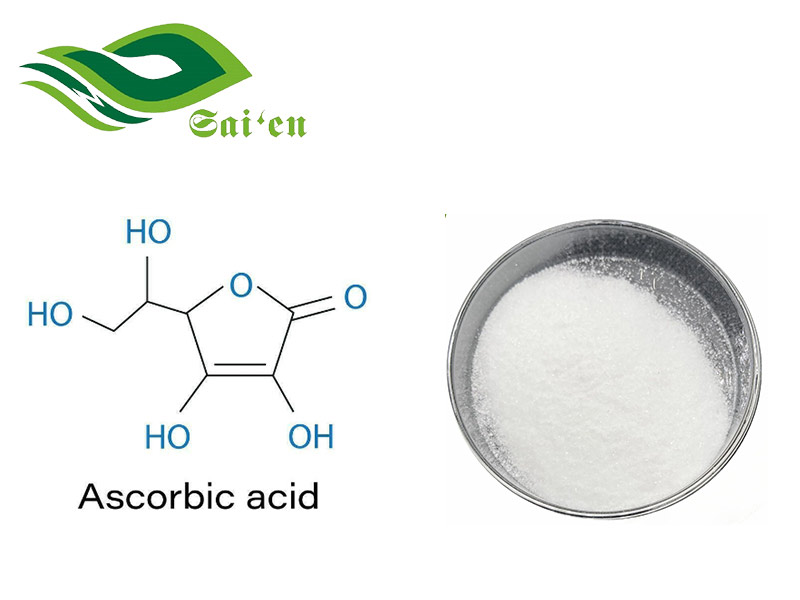If you've ever asked yourself, "Can you use copper peptides with Vitamin C together?" you're not alone. These two skincare ingredients are often hailed as powerful game-changers, each offering remarkable benefits for the skin. Copper peptides are Renowned for boosting collagen production and skin regeneration, while Vitamin C is the go-to ingredient for brightening and fighting signs of aging. But can they be combined effectively in your routine?
While both are incredible on their own, layering them improperly can sometimes hinder their full potential. This is mainly due to their different pH levels, which can affect how well they work together. But don't worry! When used correctly, you can maximize the benefits of both, achieving smoother, brighter, and younger-looking skin. Let's dive into the details of how to safely incorporate copper peptides and Vitamin C into your skincare routine.
Copper Peptides vs Vitamin C: What's the Difference?
Both copper peptides and Vitamin C are celebrated for their skin-transforming properties. But what exactly sets them apart? Here's a closer look.
What Are Copper Peptides?
Copper peptides are naturally occurring compounds composed of copper ions and small proteins (peptides). These peptides are incredibly effective at stimulating collagen production, boosting skin elasticity, and aiding in the repair of damaged tissue. When applied topically, copper peptides promote a healthier, more youthful-looking complexion by encouraging the regeneration of skin cells. They're also known for their anti-inflammatory properties, making them ideal for sensitive or irritated skin.
What Is Vitamin C?
Vitamin C, also known as ascorbic acid, is one of the most well-researched and widely used skincare ingredients. It is an antioxidant powerhouse that helps neutralize free radicals, preventing oxidative stress and damage to the skin. Vitamin C stimulates collagen production, promotes an even skin tone, and combats pigmentation issues. It also has brightening properties, leaving the skin with a radiant and glowing appearance. Its ability to protect the skin from environmental stressors, such as pollution and UV rays, makes it a must-have in many skincare routines.
Key Differences Between Copper Peptides and Vitamin C
| Aspect | Copper Peptides | Vitamin C |
| Primary Benefits | Skin repair, collagen stimulation, elasticity | Brightening, anti-aging, collagen protection |
| Best For | Improving texture, reducing fine lines | Brightening, evening skin tone, fighting wrinkles |
| How They Work | Stimulate collagen, enhance skin repair | Boost collagen synthesis, neutralize free radicals |

Can You Use Vitamin C and Copper Peptides Together?
Absolutely! Vitamin C and copper peptides can be used together to maximize skin benefits. Vitamin C is a potent antioxidant that brightens, evens out skin tone, and protects against environmental damage, while copper peptides promote collagen production, improve skin elasticity, and support repair.
To get the best results, apply Vitamin C first, as it works best when absorbed directly into the skin. Follow up with copper peptides to enhance skin regeneration and promote a youthful, smooth appearance.
When combined, these ingredients work synergistically to improve skin texture, reduce signs of aging, and boost overall skin health. For optimal results, choose high-quality Vitamin C and copper peptides from trusted sources like Saienbiotech to ensure stability and effectiveness in your skincare formulation.
Key Benefits of Combining Vitamin C and Copper Peptides in Skincare
Combining Vitamin C and copper peptides in skincare products offers a range of powerful benefits. These ingredients complement each other, working together to target multiple skin concerns for a smoother, brighter, and more youthful complexion. Here's why this combination is a game-changer for skincare formulations.
Boosts Skin Regeneration and Repair
Vitamin C accelerates the skin's natural healing process by neutralizing free radicals and promoting collagen production. Copper peptides, on the other hand, support deeper skin repair by stimulating the production of glycosaminoglycans, which are crucial for skin structure and hydration. Together, they enhance skin regeneration, making them an excellent choice for treating damaged or aging skin.
Fights Signs of Aging
As we age, our skin's collagen production slows, leading to wrinkles and fine lines. Vitamin C helps boost collagen synthesis, while copper peptides stimulate collagen production and improve skin elasticity. When used together, these ingredients help reduce fine lines, firm the skin, and restore a more youthful appearance.
Brightens and Evens Skin Tone
Vitamin C is known for its ability to brighten the skin and even out pigmentation. It helps fade dark spots, hyperpigmentation, and uneven skin tone. When combined with copper peptides, which support skin healing and texture, the duo works to reveal a more radiant and even complexion.
Improves Skin Hydration
Copper peptides help boost the skin's hydration by promoting the production of hyaluronic acid, which retains moisture in the skin. When paired with Vitamin C, which supports overall skin health, the combination provides enhanced hydration, leaving the skin plump, smooth, and moisturized.
Increases Product Effectiveness and Stability
When combined, Vitamin C and copper peptides create a more comprehensive skincare solution. While Vitamin C provides antioxidant protection and brightening, copper peptides promote deeper skin repair and collagen production. Together, they make your formulations more effective, offering a holistic approach to addressing multiple skin concerns.

Tips for Using Copper Peptides and Vitamin C Together in Skincare Formulations
When incorporating Vitamin C and copper peptides into your skincare products, it's crucial to optimize their effectiveness while maintaining product stability. Here are some practical tips for businesses to ensure these ingredients work synergistically in your formulations.
1. Proper Application Order and Sun Protection
For maximum effectiveness, apply Vitamin C first, as it's water-soluble and best absorbed directly on clean, dry skin. Copper peptides should follow, allowing them to penetrate deeper and stimulate collagen production. Since Vitamin C increases skin sensitivity to the sun, it's important to recommend that consumers use sunscreen or formulate with UV-protective ingredients. While copper peptides don't affect sun sensitivity, the combination ensures comprehensive skin protection and repair.
2. Ideal Concentrations and pH Balance
To get the best results, use Vitamin C in concentrations between 10-20% for optimal antioxidant protection without irritation. For copper peptides, aim for 0.01%-0.1% to promote skin regeneration effectively. Alongside concentration, maintaining the right pH is vital. Vitamin C works best in a slightly acidic environment (around pH 3.5 ), while copper peptides are more effective in a slightly acidic to neutral range ( pH 5-6 ). Formulating with the right pH ensures both ingredients remain stable and potent.
3. Consistency and Avoiding Conflicting Actives
To ensure your products provide consistent, long-term results, design them for daily use. This helps consumers incorporate both Vitamin C and copper peptides into their skincare routines. Additionally, be cautious when combining these ingredients with actives like AHAs, BHAs, or retinoids , as they may cause irritation. Offering separate products for morning and night use allows consumers to enjoy the benefits of each ingredient without conflict.
How to Combine Copper Peptides and Vitamin C with Saienbiotech
At Saienbiotech, we specialize in providing high-quality copper peptides and Vitamin C derivatives, perfect for creating effective skincare formulations. Combining these two powerful ingredients can enhance the anti-aging and skin regeneration benefits of your products. Here's how you can optimize their use using Saienbiotech's premium raw materials.
1. Sourcing Premium Ingredients
To achieve the best results, start with top-quality copper peptides like GHK-Cu and Vitamin C derivatives, both of which we offer in pure, stable forms. Our copper peptides are ideal for supporting collagen synthesis and skin rejuvenation, while Vitamin C provides powerful antioxidant protection and brightening effects.
2. Formulation Best Practices
For effective product development, apply Vitamin C first, as it is water-soluble and penetrates the skin best when applied directly to clean, dry skin. Follow with copper peptides to support collagen production and skin repair. At Saienbiotech, we provide guidance on achieving the ideal pH balance for your formulations. Vitamin C thrives in a slightly acidic pH range (around pH 3.5 ), while copper peptides are most effective at a slightly neutral to slightly acidic pH (around pH 5-6 ). This ensures both ingredients remain potent and stable.
3. Custom Formulation Support
We also offer customized formulations and OEM/ODM services, tailoring each product to meet specific customer needs. Our advanced production lines, including plant extraction and purification capabilities, ensure that we deliver high-quality ingredients in large quantities—up to 3,000 tons of raw material annually. Whether you need capsules, soft gels, tablets, or gummies, our custom manufacturing services will help bring your skincare product ideas to life.
Final Thoughts
Combining Vitamin C and copper peptides creates a powerhouse duo for skin care. Vitamin C brightens, protects, and fights free radicals, while copper peptides enhance collagen production and support skin repair. Together, they improve skin texture, firmness, and overall radiance. By using high-quality ingredients from Saienbiotech, businesses can develop stable, effective formulations that deliver real results. This powerful combination provides a competitive edge in the skincare market, offering consumers a solution that promotes healthy, youthful skin with visible long-term benefits.
FAQs About Using Vitamin C and Copper Peptides Together
1. Can Vitamin C and copper peptides cause irritation?
When used correctly, Vitamin C and copper peptides should not cause irritation. Start with lower concentrations if you have sensitive skin and allow each product time to absorb.
2. Can I use other actives with Vitamin C and copper peptides?
Be cautious with strong actives like retinoids, AHAs, and BHAs, which can cause irritation. It's best to use Vitamin C in the morning and copper peptides at night.
3. Will copper peptides affect Vitamin C's effectiveness?
No, copper peptides enhance the benefits of Vitamin C, working together to improve skin brightness, collagen production, and regeneration.
4. How long until I see results?
Expect to see improvements in skin texture and tone within 4-6 weeks. Fine lines will appear smoother, and skin will look brighter and firmer.
5. Will pH levels cause issues?
No, as long as your formulation is balanced. Vitamin C works best at a low pH, and copper peptides at a slightly acidic pH, so proper pH balance ensures both remain effective.


